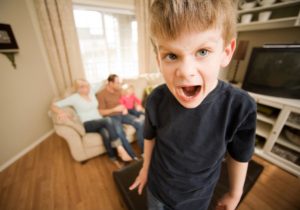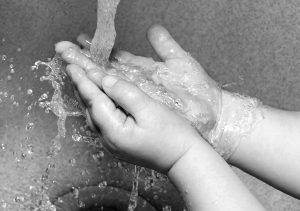Emotional Hunger
While loving our children is healthy, dependency or “emotional hunger” toward our kids can be harmful to their development. Child development expert Joyce Catlett discusses the distinction between hunger versus love and the negative effects of over-relying on our children for our own comfort and happiness.
About the Author
Joyce Catlett, M.A.
Joyce Catlett, M.A., author and lecturer, has collaborated with Dr. Robert Firestone in writing 12 books and numerous professional articles. Most recently, she co-authored Sex and Love in Intimate Relationships (APA Books, 2005), Beyond Death Anxiety: Achieving Life-Affirming Death Awareness (Springer Publishing, 2009) and The Ethics of Interpersonal Relationships (Karnac Books, 2009), with Robert Firestone PhD. Ms. Catlett began her career in psychology in 1972, working with autistic children at the Camarillo State Hospital Children’s Treatment Center in Camarillo, CA. A founding member of Glendon Association, she has been a national lecturer and workshop facilitator in the areas of child abuse prevention and couple relations. With Glendon, she has co-produced 40 video documentaries on a wide range of mental health topics. Ms. Catlett was also instrumental in the development and training of instructors in the Compassionate Child Rearing Education Program and in training mental health professionals in Voice Therapy Methodology.
Related Articles
One Comment
Leave a Reply Cancel reply
You must be logged in to post a comment.
Understanding and Preventing Teen Suicide: CAMS-4Teens™ as an Effective Treatment Approach
Learn MorePopular Posts
- Psychalive - Psychology for Everyday Life
The Latest Why Is Honesty So Important in a Relationship?
- About
Our Purpose Our desire to discover who we are - why we feel and act the ways we do –…
- Imperfect Parenting: Rupture and Repair
One of the things I know for sure as a parent is that I’m constantly being challenged to look at…
- How to Improve Relationships By Knowing Your Attachment Style
Our first relationships profoundly shape how we connect with others.
Related Articles
-

- What to Do About Tantrums and Emotional Meltdowns
August 2, 2011
Dealing with your kids’ tantrums and mood swings can be one of parenting’s most frustrating challenges. From public meltdowns to…
-

- Psychoeducating Parents to Defeat their Child’s OCD Monster! By Jenny C. Yip, Psy.D.
March 26, 2012
“Families really need to be involved in treatment, because they really do play a part in OCD even when they…
-

- The One Thing We All Should Do to Become Better Parents
September 12, 2016
Nothing feels more like a fresh start more than becoming a parent. When a child is born, the future is…







A question directed at Ms. Catlett: when you comment that “so many parents mistake these feelings of emotional hunger for affection because the sensations feel the same internally” do you mean that parents are under the impression that their own feelings of dependency and need (for comfort, stability, support, love from others) are shared by their children, and that they are actually satisfying their children’s (imagined) needs by focusing a certain kind of attention on them? Or is it simply that the child is conveniently available to be used as a source of support? What exactly happens when parents do what the mother you described in the video did to her toddler on the plane? Looking at this statement closer raises a lot of questions about what exactly is going on. I do not doubt that psychologically immature parents use their children for their own purposes all the time, but I am interested in understanding that better. Thanks.